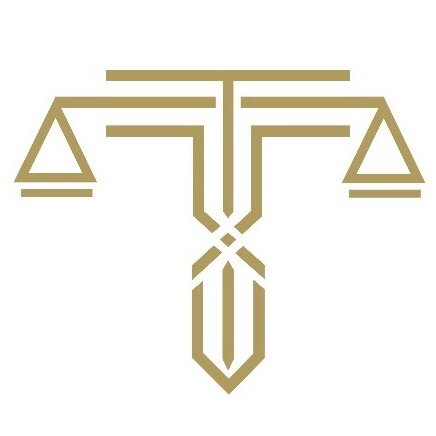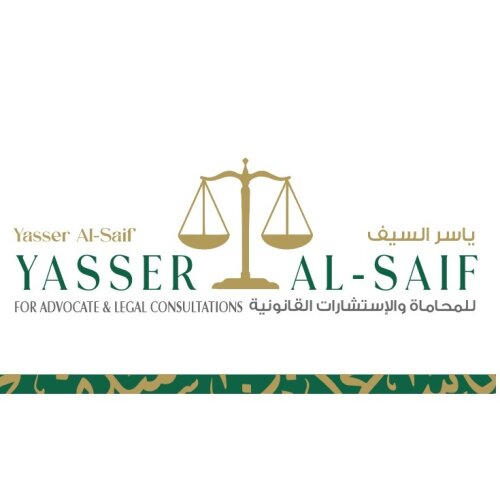Best Debt Capital Markets Lawyers in Dammam
Share your needs with us, get contacted by law firms.
Free. Takes 2 min.
List of the best lawyers in Dammam, Saudi Arabia
About Debt Capital Markets Law in Dammam, Saudi Arabia
Debt Capital Markets (DCM) in Dammam refer to the collective financial infrastructure and legal framework that enable the raising of funds through the issuance of debt instruments such as bonds, sukuk (Islamic bonds), and other securities. Dammam, as a key economic hub in the Eastern Province of Saudi Arabia, has seen increasing activity in the DCM space as both public and private entities seek to finance expansion, infrastructure, and other projects. The legal environment governing DCM is largely shaped by Saudi Arabia’s broader regulatory landscape, including Sharia-compliant structuring requirements and the oversight of bodies such as the Capital Market Authority (CMA).
Why You May Need a Lawyer
Legal advice is crucial when dealing with Debt Capital Markets in Dammam for a variety of reasons. Common situations where legal assistance may be required include negotiating and drafting agreements for the issuance of bonds or sukuk, navigating the complexities of regulatory compliance, advising on cross-border elements, representing clients in disputes, structuring Sharia-compliant financial instruments, or assisting with disclosure and due diligence requirements. Both issuers and investors engage legal advisors to mitigate risk, ensure transacting parties adhere to relevant laws, and help secure favorable terms. Moreover, legal professionals help clients understand possible tax implications and aid in efficient transaction execution from a legal standpoint.
Local Laws Overview
Debt Capital Markets in Dammam operate within the legal framework established by several authorities and regulations. The Capital Market Authority (CMA) is the primary regulator, issuing regulations such as the Capital Market Law and the implementing regulations concerning securities offerings, public and private placements, and continuous disclosure obligations. The Saudi Arabian Monetary Authority (SAMA) also plays a role, particularly for financial institutions involved in the market. Local laws require strict adherence to Sharia principles for Islamic securities like sukuk. Key regulations cover the registration and approval of debt instruments, guidelines for prospectus content, ongoing issuer obligations, and rules designed to protect investors against unfair practices such as insider trading or market manipulation. Foreign participation may be subject to additional requirements, and transactions must often comply with both local Saudi legal requirements and relevant international laws where applicable.
Frequently Asked Questions
What is considered a debt capital market transaction in Saudi Arabia?
A debt capital market transaction typically involves the issuance, offering, or trading of debt securities such as bonds or sukuk to raise capital from investors, either in public or private markets within the Kingdom.
Are foreign entities allowed to participate in Dammam’s debt capital markets?
Yes, foreign entities can participate, subject to certain regulatory restrictions and approvals. The regulations have evolved to permit greater foreign investment, but participants must still comply with Saudi laws and potentially obtain permissions from the CMA.
What is the role of the Capital Market Authority (CMA)?
The CMA is the primary regulator overseeing all aspects of securities issuance, trading, and market conduct in Saudi Arabia, including in Dammam. They set rules, approve prospectuses, and ensure ongoing compliance with local laws.
How does Sharia law affect debt securities in Dammam?
Sharia law prohibits conventional interest-bearing instruments. As a result, issuers must structure sukuk and other debt securities in compliance with Islamic finance principles, which involves legal, financial, and religious scrutiny.
What types of debt instruments are commonly issued in Dammam?
Common instruments include government and corporate bonds, Islamic sukuk, structured notes, and short-term commercial papers, all tailored to meet legal and market demands.
Is legal due diligence mandatory before issuing debt securities?
Yes, rigorous legal due diligence is necessary to ensure the issuer’s eligibility, verify disclosures, and confirm that securities comply with all regulatory requirements. This process helps reduce legal and financial risks.
What are the disclosure obligations for issuers?
Issuers must provide comprehensive, accurate, and timely disclosures both at the time of issuance (through prospectuses) and on an ongoing basis after listing, covering financial status, risks, and material developments.
Are there tax implications for issuing or investing in debt instruments?
There may be tax considerations depending on the nature of the instrument, the parties involved, and any applicable exemptions. Legal and tax advice is essential to understand these obligations fully.
How are disputes related to debt capital market transactions resolved?
Disputes are generally resolved through negotiation, mediation, or arbitration, and may proceed to the commercial courts if necessary. Legal advice is important to determine the most appropriate forum and method.
Can debt securities be structured to suit cross-border transactions?
Yes, with proper legal structuring and expert advice, debt securities can be tailored for cross-border investments, but such deals must observe both Saudi legal requirements and those of the other jurisdictions involved.
Additional Resources
- Capital Market Authority (CMA): The main regulator for all securities activities in Saudi Arabia. - Saudi Arabian Monetary Authority (SAMA): Oversight of the financial sector including banking and insurance. - Ministry of Finance: Provides information on government bonds and sukuk programs. - Chamber of Commerce in Dammam: Source of local business and legal advisory services. - Professional bodies such as the Saudi Bar Association and regional law firms with expertise in finance and Islamic law.
Next Steps
If you require legal assistance with debt capital markets in Dammam, you should start by documenting your objectives and gathering all related agreements and correspondence. Next, research and identify law firms and legal consultants specializing in financial and capital markets law, particularly those with experience in both conventional and Islamic finance. Schedule a consultation to discuss your case, ask about their experience with similar matters, and understand their approach to regulatory compliance, risk management, and transaction structuring. It is also advisable to stay informed through reputable resources and, where appropriate, collaborate with financial advisors to ensure all angles are covered. Taking proactive legal advice early will help manage risks and ensure your transactions proceed smoothly within the legal framework of Saudi Arabia.
Lawzana helps you find the best lawyers and law firms in Dammam through a curated and pre-screened list of qualified legal professionals. Our platform offers rankings and detailed profiles of attorneys and law firms, allowing you to compare based on practice areas, including Debt Capital Markets, experience, and client feedback.
Each profile includes a description of the firm's areas of practice, client reviews, team members and partners, year of establishment, spoken languages, office locations, contact information, social media presence, and any published articles or resources. Most firms on our platform speak English and are experienced in both local and international legal matters.
Get a quote from top-rated law firms in Dammam, Saudi Arabia — quickly, securely, and without unnecessary hassle.
Disclaimer:
The information provided on this page is for general informational purposes only and does not constitute legal advice. While we strive to ensure the accuracy and relevance of the content, legal information may change over time, and interpretations of the law can vary. You should always consult with a qualified legal professional for advice specific to your situation.
We disclaim all liability for actions taken or not taken based on the content of this page. If you believe any information is incorrect or outdated, please contact us, and we will review and update it where appropriate.















